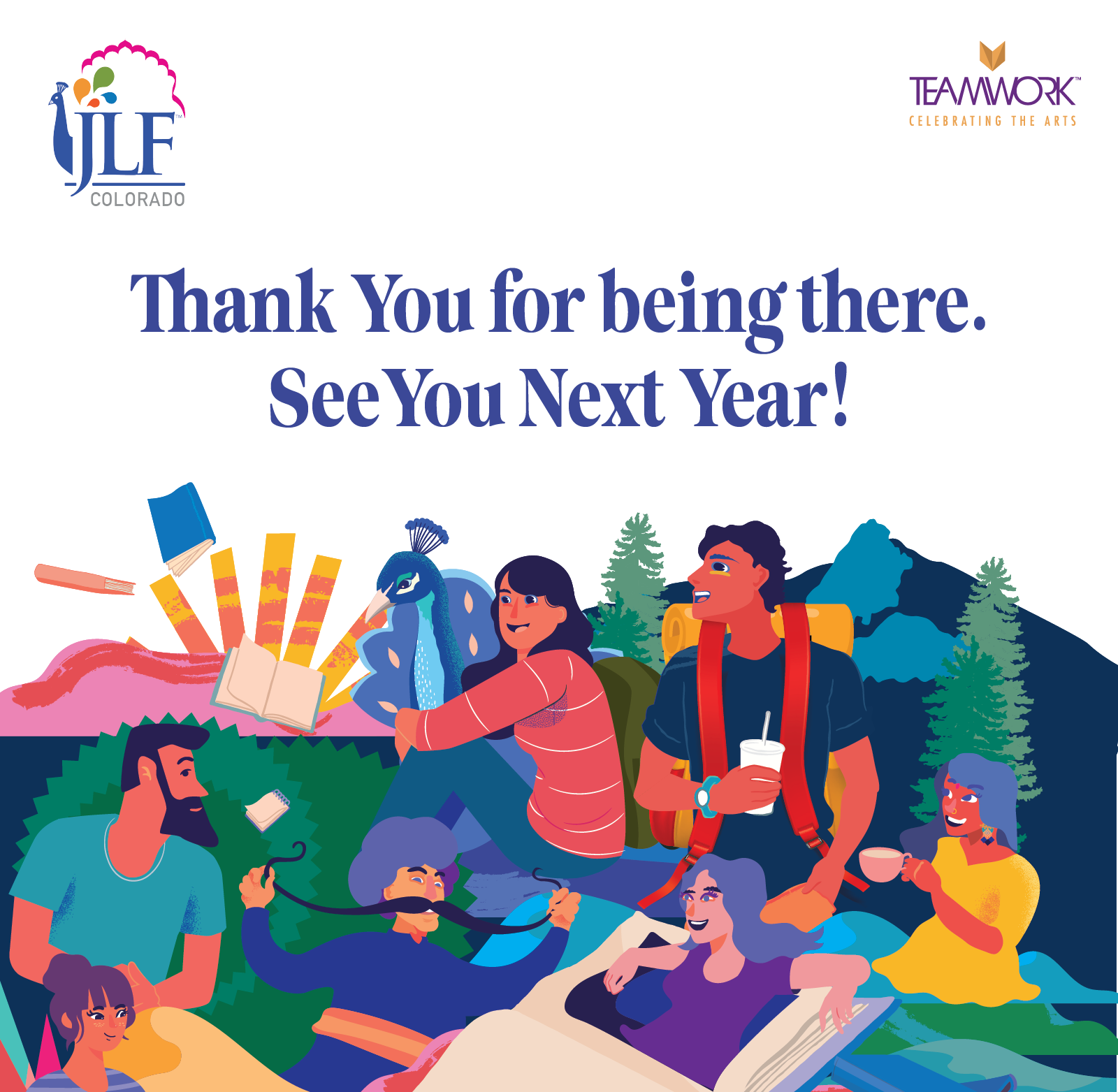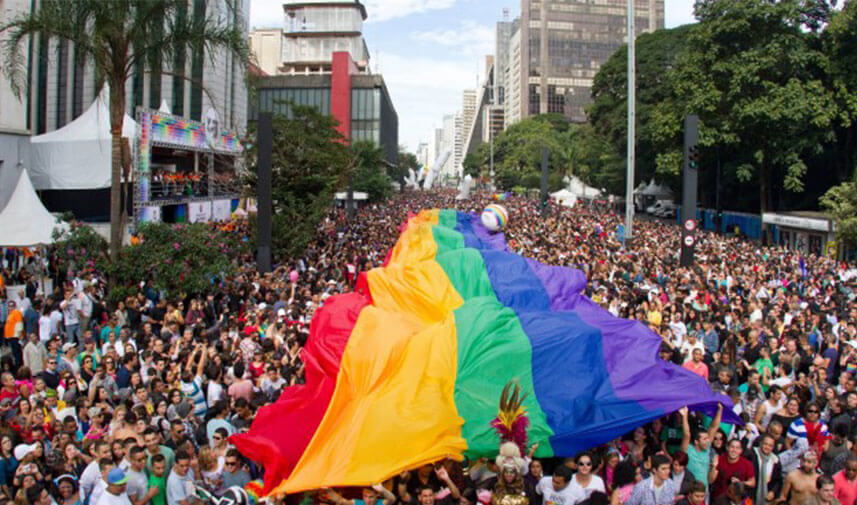


The Rainbow Parade
By Debra Nicholson, Official Jaipur Literature Festival Blogger
Watching the LGBT movement’s quest for equality from the sidelines, one might be forgiven for thinking that LGBT issues in the U.S. were all tidied up when the Supreme Court paved the way for same-sex marriage in its ruling in June 2015 (becoming the 17th nation to enact such a law).
But then came the North Carolina and Mississippi controversies, aimed at legally controlling public bathroom access for transgender people, and even more shockingly, the Pulse gay nightclub massacre in Orlando in June this year, where 49 people were murdered and 52 injured.
And therein lies the paradox of the campaign for sexual orientation and gender equality rights: often one step forward, ten steps back. Bullying, discrimination and violence toward persons with non-heteronormative expressions of sexuality and gender are still very much present in the U.S. The most recent F.B.I. report (data for 2014) on single-bias hate crimes informs us that crimes against LGBT persons totaled more than 20% of all reported hate crimes. Nor did the Supreme Court ruling on same-sex marriage cover other civil protections needed by LGBT persons to achieve full equality under the law.
It is not just in the U.S. where LGBT persons face discrimination and violence: incidents occur against them worldwide. Take, for example, a few sobering statistics from the May 2015 U.N. High Commissioner for Human Rights’ report to the Human Rights Council on “Discrimination and violence against individuals based on their sexual orientation and gender identity:â€
– 25% of the 93,000 LGBT-self-identified respondents, in a 2013 European Union Agency for Fundamental Human Rights survey, reported experiencing or being threatened with violence in the previous five years (8).
– “The Inter-American Commission on Human Rights reported 594 hate-related killings of LGBT persons in the 25 States members of the Organization of American States between January 2013 and March 2014 (9).â€
– “The Trans Murder Monitoring project, which collects reports of homicides of transgender persons in all regions, lists 1,612 murders in 62 countries between 2008 and 2014, equivalent to a killing every two days (9).â€
The graphic illustration below from the ILGA (International lesbian, gay, bisexual, trans and intersex Association) reveals how legal protections for LGBT persons vary widely around the world. LGBT persons are subject not only to legal discrimination and criminalization but also the death penalty in some countries due to their sexual orientation.
Clearly, there is much to be done to protect the human rights of LGBT persons, not only in the U.S., but in all countries, for the sake of their lives and wellbeing.
It is heartening to note that the U.S. State Department launched a “Global Equity Fund†to promote equality, advocacy, protection, and dialogue, as a response to the U.N.’s 2011 report on the state of LGBT rights worldwide. More recently, Secretary of State John Kerry appointed a Special Envoy for the Human Rights of LGBT Persons, whose job is to advocate for increased rights and protections in nations with receptively moderate views. Just last month, the U.N. resolved to create a unique investigative position to research and report on violence and discrimination against LGBT persons, in its ongoing plan to advance protections as human rights.
On the other hand, high-level international pressure on countries to enact LGBT hate crime laws, set up educational policies reflecting tolerance toward LGBT persons, legally recognize same-sex couples, and so on, can have unintended consequences. Some governments view the programs and interventions as “the product of a Western agenda,†making the work of country activists much more difficult as anti-LGBT legislation may end up being even more repressive. Rather than attempting to force resistant governments to align their laws and policies with the U.N.’s vision, it may be more prudent to work with allied groups on the ground, who are more familiar with their country’s challenges and nuances.
While questions persist about the best way to move forward, every day thousands of LGBT persons face human rights abuses such as bullying, discrimination, brutality, and even death, for their sexual orientation, without dependable recourse to legal protections.
If one has been standing on the sidelines, watching, is watching now enough?
©Debra Nicholson
Like this blog? Find more interesting blogs about the Jaipur Literature Festival in Jaipur too! Click here.
Disclaimer: We do not endorse, support or subscribe for any statement, view or comment expressed or posted on this blog or social media page. Any view, statement or comment posted on this platform does not represent the views of Teamwork Arts, its affiliates or its employees or any person associate with Jaipur Literature Festival (JLF), unless specifically stated otherwise. Further, the usage of images is only to represent the thoughts of the blog. We claim no credit for any images posted on this site unless otherwise noted. The images on this blog are copyright to its respectful owner. If there is an image appearing on this blog that belongs to you and you do not wish for it to appear on this site, please e-mail at contact@teamworkarts.com with a link to the said image and it will be promptly removed.



Leave a comment